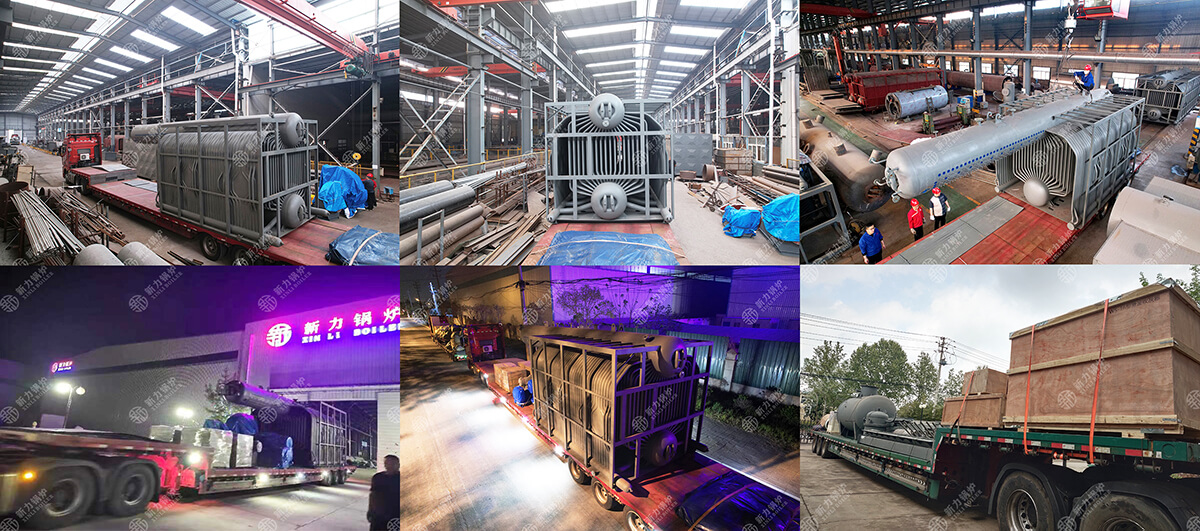Guide: A textile company ordered a set of 10 ton SZL series steam boiler from Xinli Boiler used for their textile process like dyeing, drying, sizing processes, etc..
A textile factory in Pakistan is a high-tech home textile fabric production enterprise that mainly uses high-end pure cotton and functional fibers as raw materials, weaving and finishing as the main products. The textile industry has a high demand for steam in multiple processes, such as dyeing, drying, sizing, etc., all of which require steam support. In the dyeing, printing, drying and other processes of textiles, the thermal energy generated by biomass boilers is uniform and stable, which can accurately meet the various requirements of textile technology. The steam provided by biomass boilers can ensure the firmness of colors and the quality of fabrics especially during the dyeing and drying process. In addition, the textile factory workshop is prone to static electricity due to the high amount of dust. The workshop uses steam to regulate the indoor temperature and humidity, thereby eliminating static electricity and improving the production environment. Biomass fuel has a high calorific value and high combustion efficiency, which can effectively reduce energy consumption and save costs for the enterprise. For textile factories, this means that energy costs can be reduced and economic benefits can be improved.
The textile company ordered a set of 10 ton SZL series steam boiler from Xinli Boiler. The textile company uses rice husk as boiler fuel to achieve green production,. Xinli Boiler's SZL series biomass boiler is equipped with an excellent automatic control system, which can achieve automatic fuel feeding, automatic adjustment and monitoring of the combustion process, and is easy to operate, thereby reducing the labor intensity of the enterprise. For textile factories, this means more efficient production and lower operating costs. Xinli Boiler's biomass boiler uses biomass fuels (such as rice husks, sawdust, straw, etc.), and the carbon dioxide emissions generated after combustion are basically equal to the carbon dioxide absorbed during plant growth, which meets the environmental protection requirements of sustainable development. For the textile industry, this can effectively reduce carbon emissions and meet environmental protection requirements. With the advancement of global environmental policies and the continuous deepening of energy conservation and emission reduction, the market prospects of biomass boilers will become increasingly broad. The textile industry as a major energy consumer can help achieve green transformation and sustainable development by using the biomass boilers. Therefore, this 10 ton of SZL series biomass boiler is a very wise choice for the textile enterprise!
More information on LinkedIn:
Related video on YouTube:
https://www.youtube.com/watch?v=hEOlwwR8JFI





























